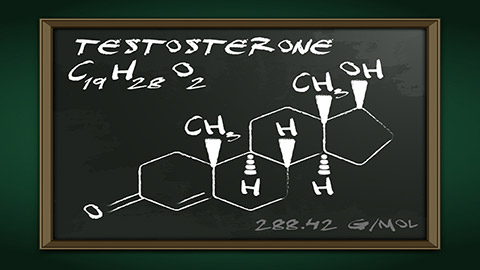The role of hormones explored

A 2016 article by J. Michael Bailey PhD, et al., (2016) summarizes current theories relating to the role of hormones in prenatal development and sexual orientation:
“Testicular release of steroid hormones, specifically androgens such as testosterone, act early in life to induce the formation of male genitalia (penis, scrotum, etc.) and alter the developing brain to promote male sexual behavior in adulthood."
Bailey continues:
"The absence of these testicular secretions leads to the development of female-typical genitalia (clitoris, labia, vagina, etc.) and brain organization that, in adulthood, is more likely to drive female-typical sexual behavior. The organizational hypothesis applied to human sexual orientation holds that during an early—probably prenatal—sensitive period, the brains of homosexual people are subject to atypical influences of androgens. Specifically, homosexual men’s fetal brains were androgenized less than heterosexual men’s; homosexual women’s were androgenized more than heterosexual women’s.” (Bailey et al., 2016, p. 70)
Dr. Bailey and his colleagues emphasize that scientific theories relating to the role of hormonal differences in influencing sexual orientation are just that—scientific theories.
While existing studies demonstrate the plausibility of the organizational hypothesis of human sexual orientation, additional research is needed to provide direct evidence that prenatal androgen levels play a role in same-sex attraction. To date, there are as yet “few replicated findings of this type.” (Bailey et al., 2016, p. 70)
References:
Bailey, J.M., Vasey, P.L., Diamond, L.M., Breedlove, S.M., Vilan, E. & Epprecht, M. (2016). Sexual orientation, controversy, and science. Psychological Science in the Public Interest, 17(2), 45-101. https://journals.sagepub.com/doi/pdf/10.1177/1529100616637616
Dee
Who is Dee?
Gender Identity
 Our core sense of who we are as a man, a woman, a mixture of both, or neither.
Our core sense of who we are as a man, a woman, a mixture of both, or neither.
Gender Expression
 How we show up in the world through choices like clothing, hair style, mannerisms or tone of voice.
How we show up in the world through choices like clothing, hair style, mannerisms or tone of voice.
Attraction
 How we feel toward others sexually, romantically and/or emotionally.
How we feel toward others sexually, romantically and/or emotionally.
Biological Sex
 Physical attributes such as reproductive organs and genitalia, chromosomes, genes and hormone levels.
Physical attributes such as reproductive organs and genitalia, chromosomes, genes and hormone levels.
Explore More
Take a look at this article published by Dr. Bailey and his colleagues, for more information on recent scientific findings relating to the role of hormones in prenatal development and sexual orientation.
